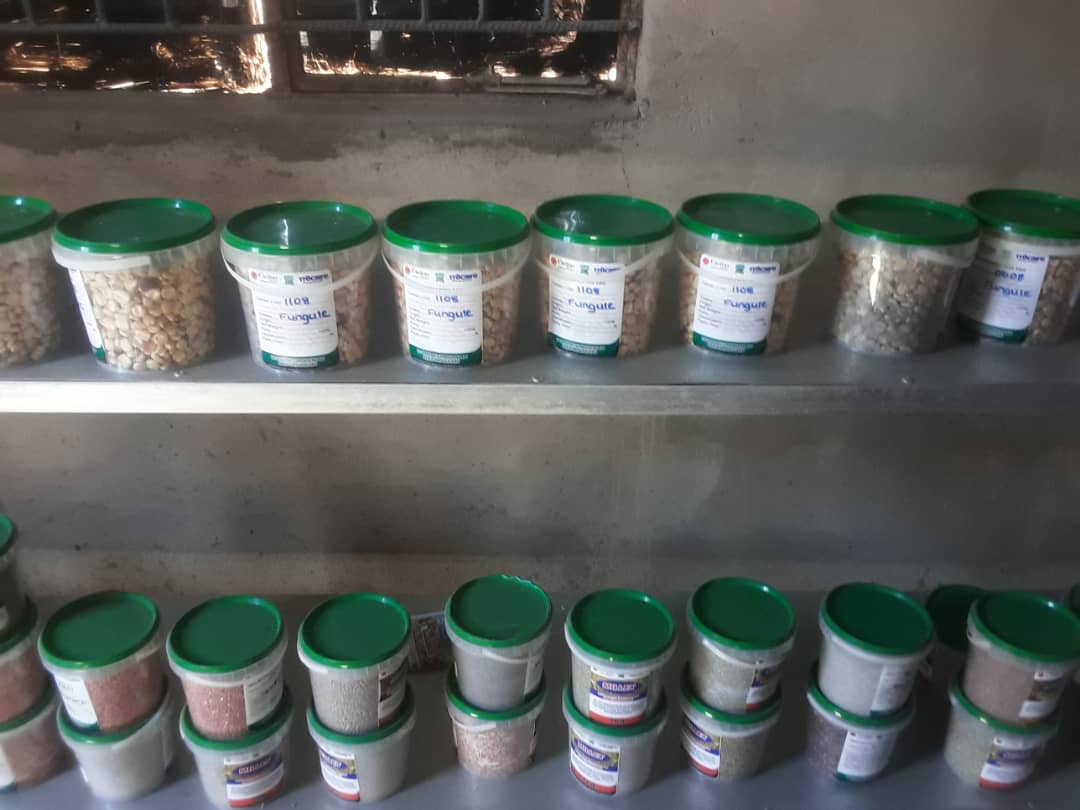As climate change accelerates, its effects are increasingly felt in vulnerable regions.
Villagers in St Joseph, Matobo District, known for its diverse ecosystem, have taken a proactive approach to address the challenges posed by climate change by embarking on a seed banking initiative.
This community-driven project began in 2012 at a household level before evolving into its current form. It focuses on preserving indigenous seeds, ensuring food security, and building resilience against climate-induced disruptions.
Matobo, like many regions, is experiencing erratic weather patterns, prolonged droughts, and shifting seasons. These changes threaten traditional farming practices and the survival of indigenous crops cultivated for generations.
Speaking to CITE, the chairperson of the Project Management Unit, Hleziphi Nkomo, highlighted the efforts of a group of 10 women who oversee the seed bank.
They preserve seeds of small grains, including red sorghum, millet, groundnuts, beans, watermelon, pumpkin, and legumes.
Nkomo explained that the entire community is involved in seed production as they organise themselves into different neighbourhood groups.
“The seed bank is a granary we established in the community to preserve our seeds. Climate change has really affected us, and we realised the importance of preserving seeds that are suitable for our local climate. We only preserve indigenous seeds, the ones our forefathers used,” she said.
Nkomo further explained that the group banks small grains and what they refer to as “lost and found” seeds—varieties that were once cultivated but have since fallen out of use.
“We search for these seeds, conduct demonstration plots, multiply them, and preserve them. When the farming season approaches, we distribute the seeds for planting,” she said.
“As Matobo, we even visited the Gene Bank in Harare, the largest seed bank that preserves seed samples. We went there to enhance our knowledge of seed banking and received certificates to become seed inspectors. We want our samples to be preserved there as well, so even if we are hit by drought, our seeds will be well preserved,” she added.
Nkomo noted that their method of seed banking is cost-effective.
“We wanted to ensure food security in our area and noticed that working with our indigenous seeds incurs no additional expenses. We don’t need chemicals for preservation; we use our traditional methods and resources.”
“We grow these seeds on our farms. Preserving indigenous seeds is beneficial because they do not expire like commercial seeds. If we farm and preserve them using traditional methods, they can be stored and regrown. We use traditional trees, like umhlohlo, to make ashes, and goat compost, which we burn to ash. We also use chillies and other materials. When preserving these seeds, we use traditional pots, like iqhaga, and cover them with cow dung. No pesticide can affect the seeds preserved this way,” she said.
Nkomo proudly mentioned that they still have seeds from the previous year, which remain in excellent condition.
“We even sold these seeds at the annual festival in Harare, using just the ashes our ancestors used.”
She added that the seed bank has also become a source of income for the community.
“We now sell these seeds at various events, including the Good Food Festival in Harare. We sell locally, to other districts, and to donors who buy seeds for their projects in different areas.”
Nkomo also highlighted that their seed bank includes processing, with value addition. They package dried vegetables, mealie meal from small grains, and mahewu, which they have sold at international festivals in Harare.
Nkomo said demand for their seeds has grown significantly.
“We are now able to supply other districts. Our seed bank also generates revenue for us. We have a demand for 8,500 units of 2 kilograms of small grains, which donors purchase in USD. This empowers us as women of Matobo.”
She concluded by emphasizing the community-wide benefits of the seed bank.
“Everyone in the community helps package their seeds and sell them. A certain percentage of the proceeds remains in the seed bank, which we use to buy packaging materials,” said Nkomo.

